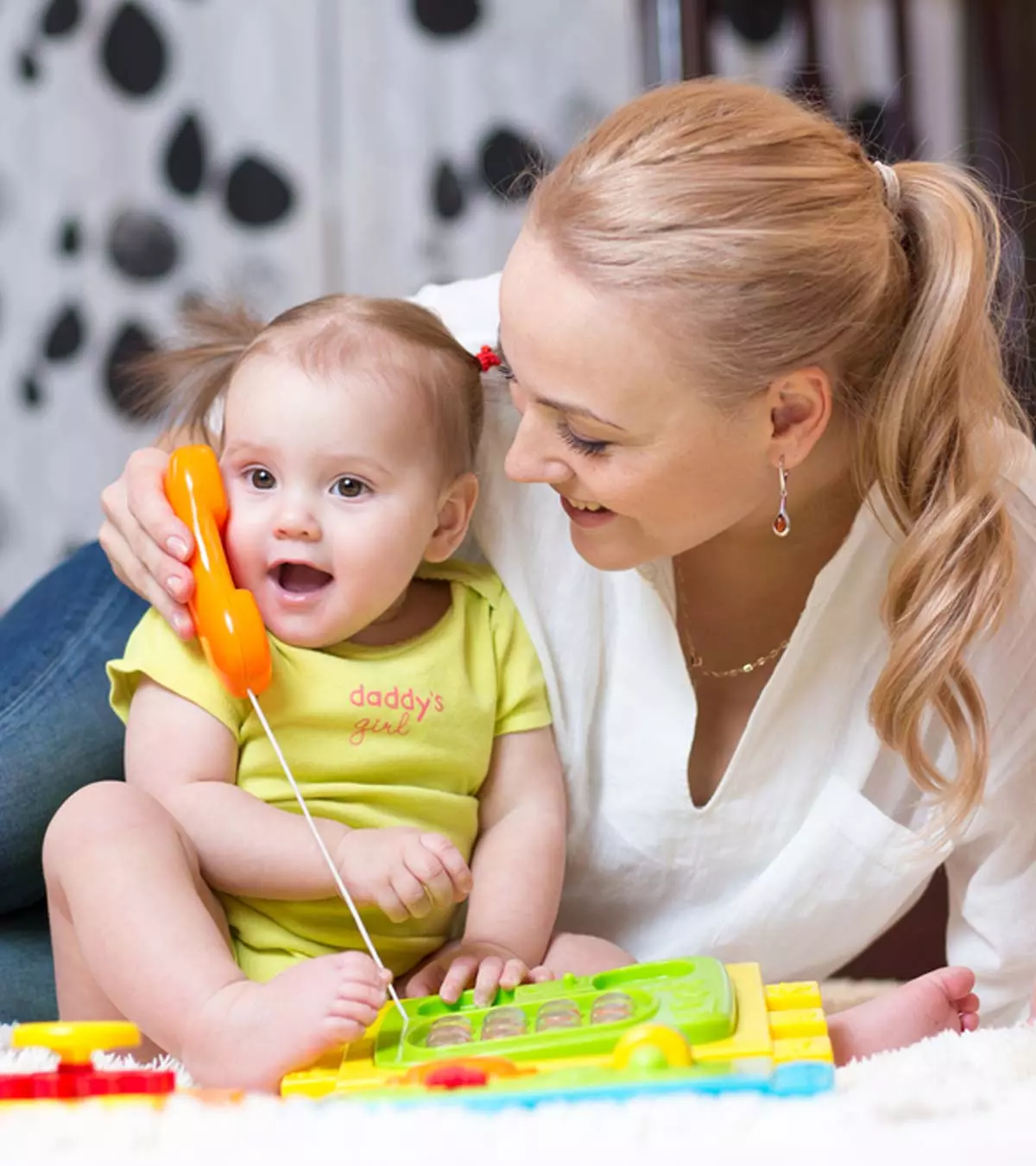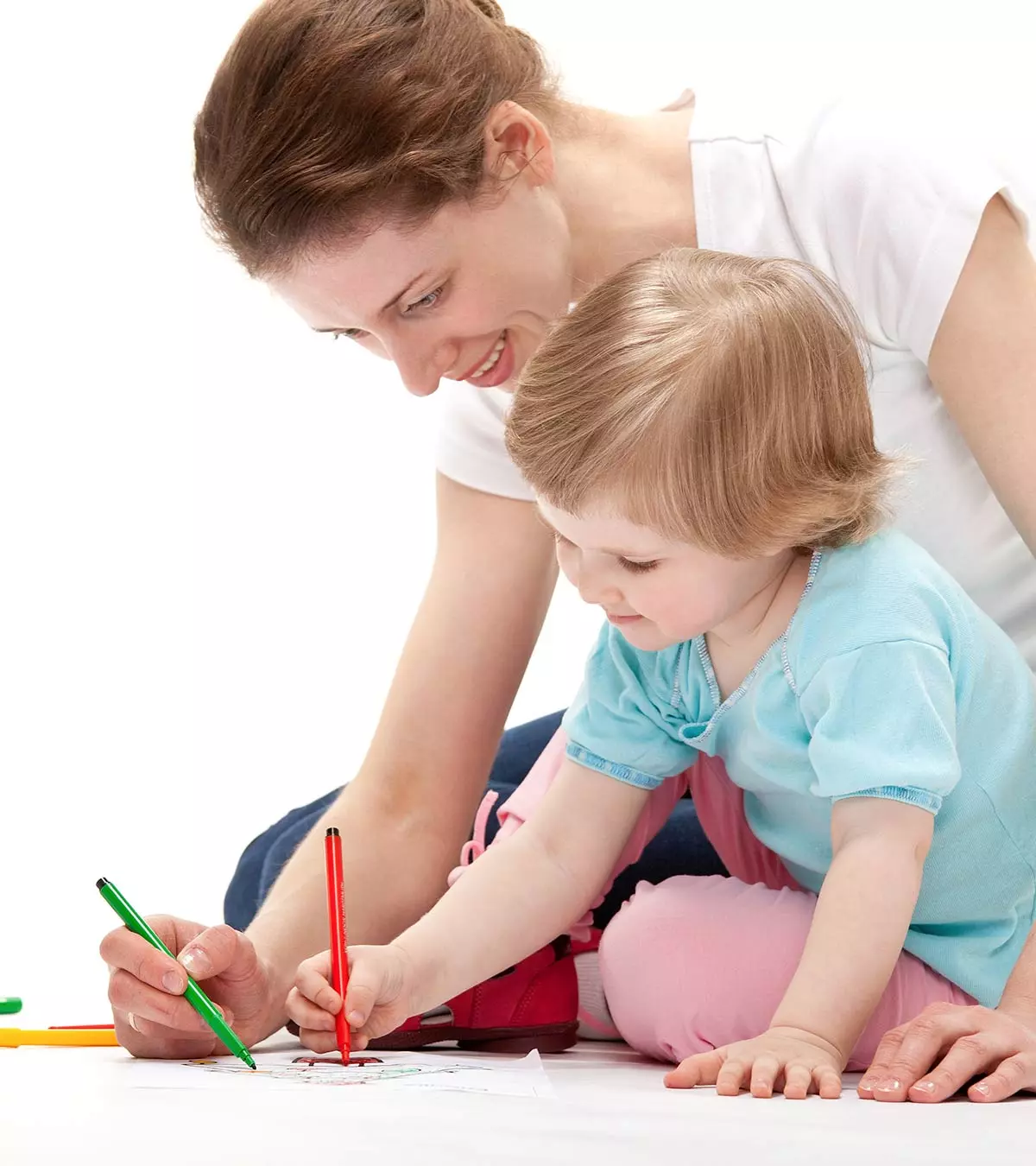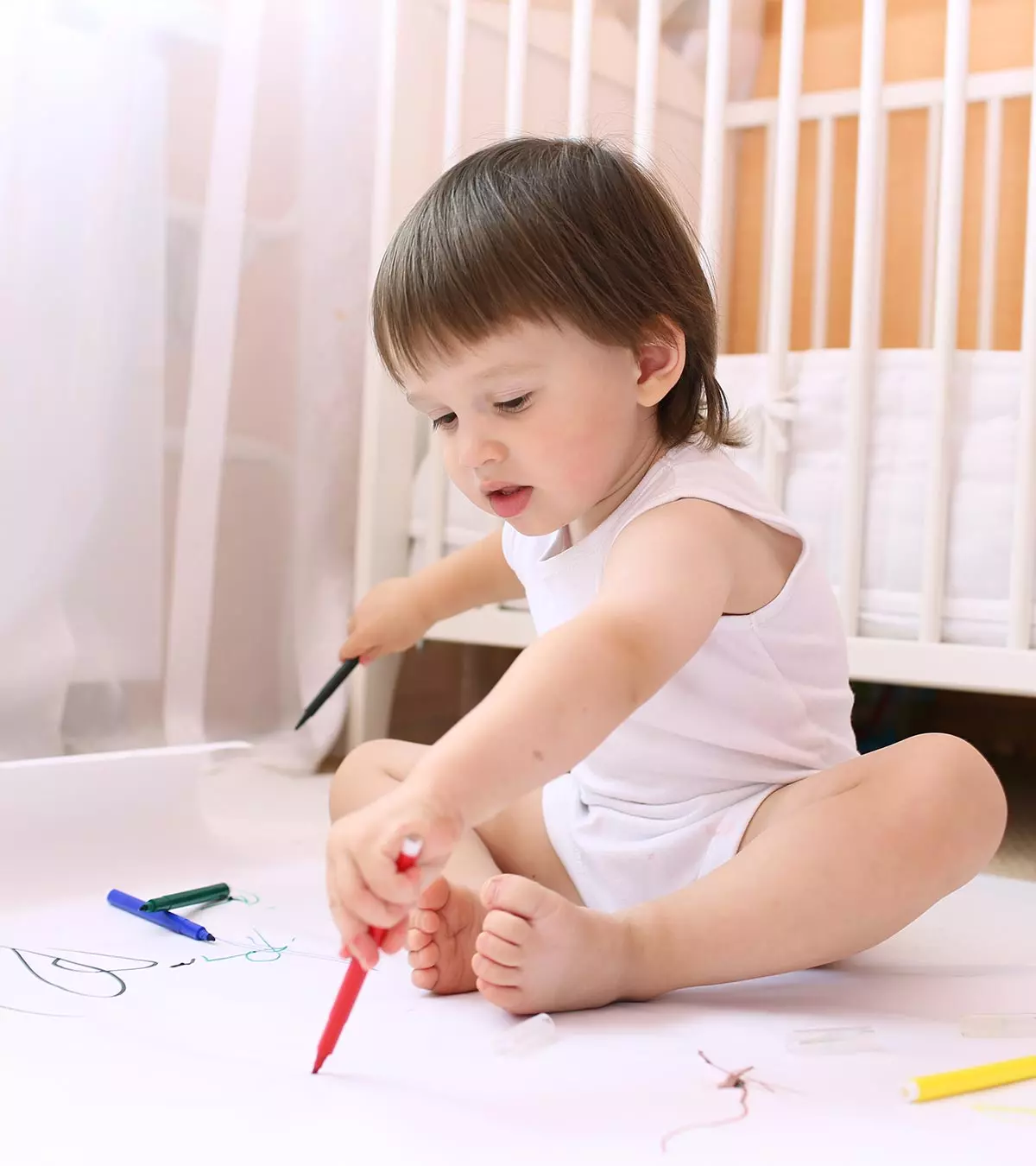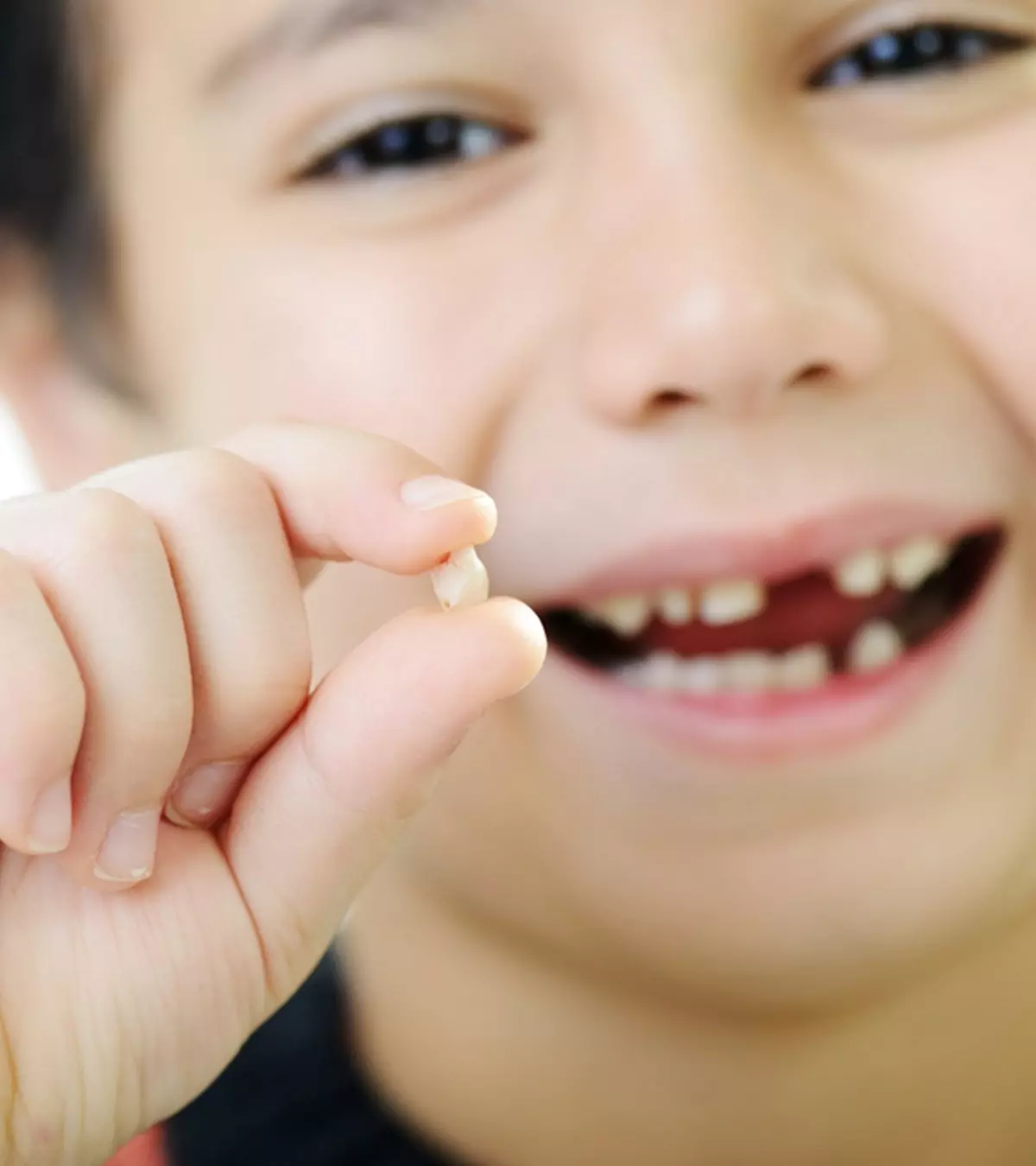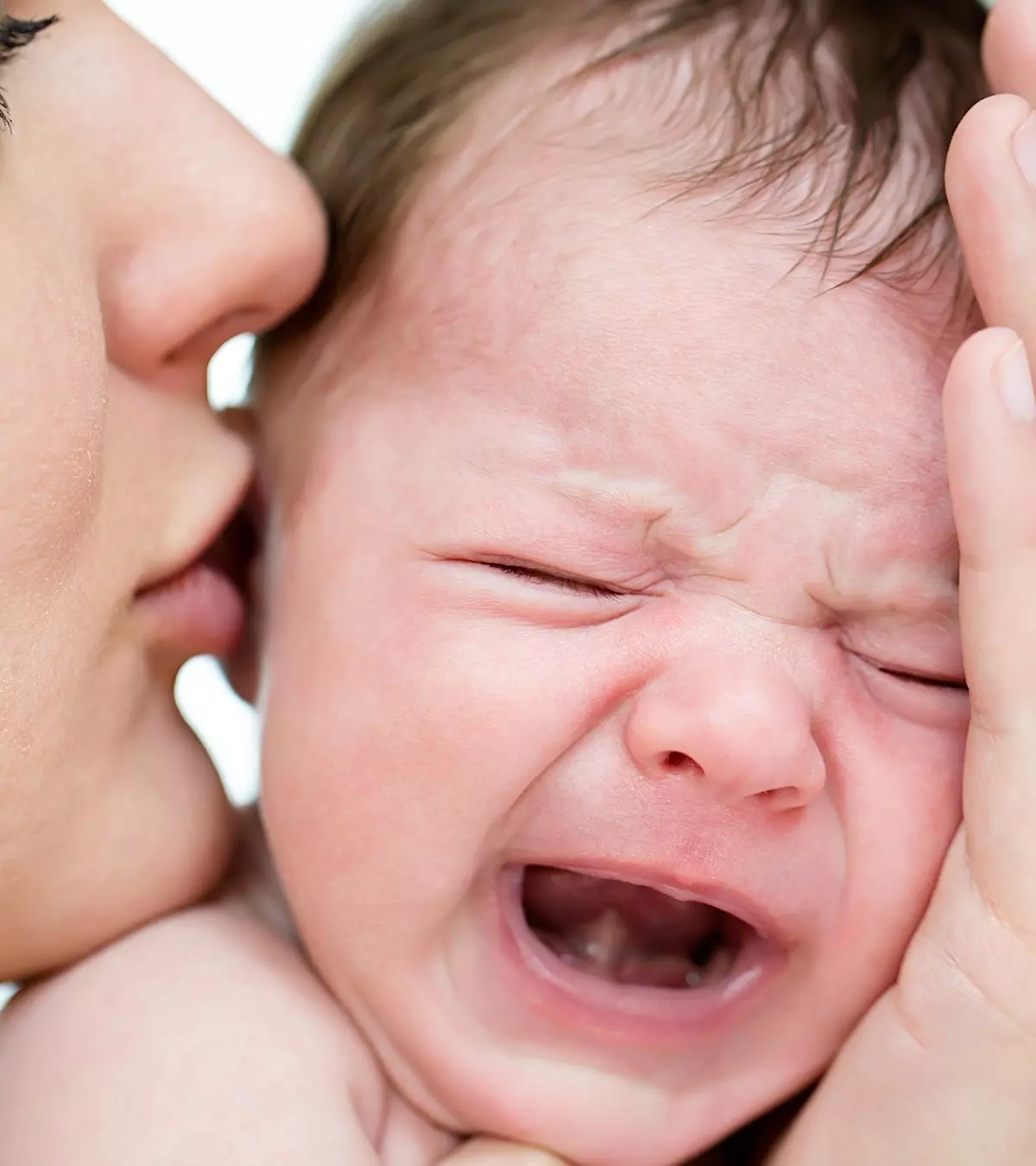
Overstimulation is when babies are exposed to more activities, noise, and experiences than they can handle. Overstimulated babies may deal with disturbed sleep and lack of enthusiasm. Under normal circumstances, activities such as playing may help children develop their sense of smell, sound, touch, and taste. These enable them to learn new things and develop their abilities. Over the years, there have been many proofs to indicate that stimulation enhances behavior and helps in brain development (1) (2). Therefore, parents should talk and play with their children often because it helps them build new connections in their brain cells, thus causing an effective overall development. However, you should identify when your little one is overstimulated and is looking disturbed. Keep reading the post to know more about the signs of overstimulation in babies, its causes, and ways to deal with it and avoid it.
Key Pointers
- Infants get overstimulated when exposed to excessive activities, noise, or experiences.
- Signs of overstimulation in babies can be categorized into body and behavioral cues.
- Comforting them in a quiet place, dimming lights, or swaddling them may help an overstimulated baby to calm down.
- Parents can create a more conducive environment for the baby’s well-being and development by preventing overstimulation.
What Is Overstimulation In Babies?
Overstimulation is a condition where your baby has had an overload of experiences. Babies are naturally curious and love exploring their surroundings. However, sometimes they may get over-stimulated and find it hard to calm down. Over-stimulation can make your little one feel hyperactive, agitated, restless, irritable, anxious, overexcited, over-sensitive, and over-aroused, which can make it difficult for them to fall asleep or stay asleep. As a parent, it is important to recognize the signs of overstimulation and take steps to prevent it.
Toronto’s Hospital for Sick Children, Infant Mental Health Promotion director Chaya Kulkarni says, an occasional misreading of baby’s cues of overstimulation is inevitable and not a concern. But, “there’s always the chance that if the parent repeatedly doesn’t respond — if you continue trying to play the game or ignore their distress — the baby will zone out, withdraw, or mentally retreat,” she adds.
Below is a list of some signs and symptoms which could indicate that the baby is overstimulated.
11 Signs Of Overstimulation (SOS) In Babies
To avoid overstimulating the baby, it is essential that you understand the signs of overstimulation (SOS) displayed by the baby. SOS can be classified into two types: Body SOS and Behavioral SOS (2).
Body SOS: An overstimulated baby may show body SOS, such as:
- A change in skin color from normal to bright red or pale
- A change in movements like showing tremorsiInvoluntary uncontrollable movements that are more often associated with an underlying medical condition. or jerks
- Subtle changes in breathing patterns, like breathing fast
Behavioral SOS: Behavioral SOS include:
- Rubbing eyes
- Spreading toes and fingers
- Covering the face with hands
- Spacing out (looking away from you)
- Trying to switch off (turns head away from you)
- Becomes fussy, cranky, or drowsy (shutting down)
- Stiffens up instead of relaxing

It is also important to pay attention to your baby’s cues and respond accordingly. If you notice that your little one is becoming over-aroused or restless, try to soothe them by rocking them gently, singing a lullaby, or offering a pacifier. If your baby is showing signs of anxiety or irritability, try to comfort them with a warm hug or by holding them close. Simply holding the baby for a few minutes should do the trick. You may try swaddling the baby, encouraging them to suck, or simply swaying them a bit. All babies can get overstimulated now and then, but preterm babiesiThe baby is born before the 37th week of pregnancy. or the ones with physical challenges frequently send SOS.
Identifying the exact causes of overstimulation is essential to help in counteracting the problem and finding a prompt resolution.
Causes Of Overstimulation

Here are the primary causes of overstimulation (3).
- Anything too much is too bad. Your little one may get overstimulated if they are exposed to an activity for too long, spending a lot of time with friends or relatives, exposed to loud sounds, busy sights, pungent smells, or technology. They may also send SOS if their routine gets disturbed.
- Duration and intensity of an activity can also contribute to overstimulation. It also depends on the temperament of the little one. Some babies are easy-going, while some are easily overwhelmed. An activity or environment, like a crowded or noisy gathering, may be entertaining for some babies but overwhelming for others.
- Immature nervous system: Newborns may get stimulated even faster as they do not have matured nervous systems to regulate the many things that are flooding into it. Even the simplest of acts like feeding, handling, talking, and making eye contact can overwhelm a neonateiA infant under 28 days of age. . Every simple thing is incomprehensible and new for the infant, as they are different from what the baby experienced in the mother’s womb. You will have to wait for many months for your baby’s system to mature enough to regulate things.
Now that we know a few causes for overstimulation, it is important to look out for ways to manage it.
How To Deal With Overstimulated Babies?

If your baby has reached the limit, hold them close to you to soothe and reassure them calmly. A few babies may not like to be touched or picked if the situation is very stimulating. In such cases, take the baby to a quiet place, dim the lights, and minimize the activity. Swaddle, rock, or speak gently to them. Offer them a feed or pacifier. They will settle down in some time (4).
In summary, preventing overstimulated babies requires paying attention to their sensory input, establishing a predictable routine, and responding to their cues. By doing so, you can help your little one feel calm, secure, and well-rested.
Above all, the best thing you can do is to trust your instinct and do what calms the baby down.
5 Ways To Avoid Overstimulation
Studies indicate that overstimulation in babies leads to behavioral differences and deficits in cognitive performance.T
he key lies in aiming for the right balance. It can be achieved by following these guidelines.
1. Keep an eye on early warning signs
Responding to the early warning signs from your baby is essential to prevent stress in babies, which can lead to crying and increased distress. Too much fun can cause overstimulation, irrespective of the time of the day, and the baby may need a break. Figure out the signs and respond.
Jordan, a young father, talks about the time his son, Henry, was a victim of overstimulation. Jordan says, “He was stressed out and we saw some of the symptoms (an overstimulated baby). His cry changed pitch and intensity, he was loud, he’s more vocal but he actually started sleeping close to six hours during the night so I’m not too terribly mad.” This occurred during a visit to Henry’s grandparents over the holidays, where Henry was the center of attention and it was all just too much for him to bear (i).
2. Time it well

Remember that timing means everything! Consider your baby’s regular feeding, playtime, and sleep schedule. Figure out the best time for them to be alert, content, and interested in socializing, and plan accordingly. Most kids are happiest in the mornings and after afternoon naps. Check out a suitable time for your baby and go ahead with the activity or outing.
3. Preparation is the key
Plan your outings or gatherings well, so that the baby does not get overwhelmed. Take snacks, extra clothing, favorite toys, light blankets, and other essentials if you are heading out with your baby. Go to a quiet place if your baby is sensitive to crowds. Know your baby’s cues and share them with other family members handling the baby.
4. Take breaks
Plan well and ensure that your little one is prepared for the fun. They should have some time in between to communicate with you if they want to. If you notice that your baby is too excited or over-tired, have a little quiet time with them during breaks. These breaks are useful in avoiding overstimulation and managing the needs of an overtired baby. Ensure that your baby is ready and shows engagement clues before finishing the break. These breaks are useful in avoiding overstimulation.
5. Minimize the use of technology

Say ‘No’ to iPad and baby apps that are too stimulating. Doctors do not recommend screen time for babies. Stick to basics, like a pot and spoon.
Following the above-mentioned tips could really help in avoiding overstimulation, and this would have some appealing benefits too.
5 Benefits Of Avoiding Overstimulation
While it may seem like you have to put a lot of effort and spend a lot of time guessing and avoiding overstimulation in your baby, it can be helpful in many ways.
- The baby feels secure and develops confidence in you.
- A little prevention can hugely help in keeping the baby and everyone around happy.
- You can prevent unsuccessful time-outs or bribes to calm your baby down.
- It will get easy to work with the little one’s natural rhythms and abilities.
- Everyone around can have fun, and the baby would enjoy growing up happily.
Frequently Asked Questions
1. Why does an overstimulated baby cry a lot?
When the baby is overstimulated, they are probably awake for a long time and get too tired. This could make them cry as they struggle to relax.
2. Can my baby overcome overstimulation?
Yes, babies can overcome overstimulation as they grow. When the baby learns to crawl and move around, they can create their own change in stimulation. Until then, you have to help them by frequently carrying them with you. If you keep your little one down, ensure that you provide toys, good music, or colorful things to look at.
While the basic temperament remains consistent in babies, the reactions may change over time. Babies develop the skills to deal with things and become social as they grow. An overwhelming activity for a nine-month-old baby may become one they will likely enjoy once they are a bit older.
3. Is under-stimulation possible in babies?
Yes, under-stimulation occurs when the environment is familiar and boring for the baby. It is a situation where the baby may be intellectually starved and may be stressed as a result of it. This could be a result of a lack of new toys or experiences. Follow your baby’s cues to find out if they are crying due to under stimulation or overstimulation. Premature infants, and those with intra-uterineiRefers to the inside of the uterus. substance exposure are more prone to overstimulation.
4. Can overstimulation harm a baby?
Babies are sensitive to their environment, and excessive stimulation may cause them to become overwhelmed, stressed, and fatigued. Overstimulation can also interfere with their ability to develop a healthy sleep-wake cycle, which is vital for overall growth and development.
As parents, you may want your baby to be active and energetic and thus try to stimulate them with different activities. However, overstimulated babies can turn just the opposite of what you intended. So be aware of their behavior and avoid over-exhausting or over-exposing them to various activities all at once or too frequently. Planning their playtime and maintaining a routine may help prevent overstimulation. If your baby does show symptoms, you may try some tips and techniques to help the baby to self-soothe or calm them down by swaddling or taking them to a quieter and cozy place.
Infographic: How To Know If A Baby Is Overstimulated?
As your baby grows and starts to explore the world around them, certain factors can trigger them to be over-stimulated. However, knowing the possible signs of overstimulation, as listed in the infographic below, can help you avoid the triggering factors and take control of the situation.

Illustration: Momjunction Design Team
Illustration: Signs Of Over-Stimulated Babies & Ways to Deal With Them

Image: Stable Diffusion/MomJunction Design Team
Personal Experience: Source
MomJunction articles include first-hand experiences to provide you with better insights through real-life narratives. Here are the sources of personal accounts referenced in this article.
i. Is my baby overstimulated? How to know and how to help?https://www.youtube.com/watch?feature=shared&v=hMMncK-ykYU
References
1. Shilpa Ravinder et al.; Excessive Sensory Stimulation during Development Alters Neural Plasticity and Vulnerability to Cocaine in Mice; National Center For Biotechnology Information (2016)
2. Newborn Sleep Patterns; Johns Hopkins Medicine
3. Overstimulation: Babies And Children; Government of Singapore
4. D. A. Christakis et al.; Overstimulation of newborn mice leads to behavioral differences and deficits in cognitive performance; National Center For Biotechnology Information
5. Premature Infant: Signs of Overstimulation; Kaiser Permanente
6. Signs Your Baby Is Overstimulated; Texas Health Resources
7. Regulation Before Feeding: Overstimulation as a breastfeeding issue; Wisconsin Women’s Health Foundation
Community Experiences
Join the conversation and become a part of our nurturing community! Share your stories, experiences, and insights to connect with fellow parents.
Read full bio of Dr. Michael Hefferon
Read full bio of shreeja pillai
Read full bio of Rohit Garoo
Read full bio of Shinta Liz Sunny













